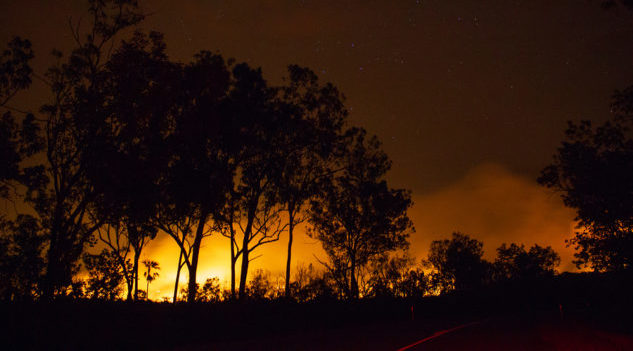The Federal Minister for Employment, Skills, Small and Family Business, Michaelia Cash, is hosting a roundtable in Canberra today to hear from the small-business community about the impact the bushfire emergency has had on them, and what support they need in both the short and longer terms.
Small business will be represented by a number of its key stakeholders, to provide as thorough as possible a picture of the different challenges facing tourism operators, retailers, farmers and the thousands of small-business owners, sole operators and contractors whose livelihoods are threatened by the decimation of their communities.
CEO of The Council of Small Business Australia (COSBOA), Peter Strong, told Inside Small Business that the federal government are very mindful of the bushfires’ impact on small business, and that this roundtable is an opportunity to identify the most urgent action the sector needs and then start mapping out a strategy to help SMEs get back on their feet.
“Many small-business owners and home-based sole operators have lost access to the internet and telecommunications, rendering them unable to operate,” Strong told me yesterday. “Business of all types are suffering, and they need immediate assistance, followed by ongoing support.”
Australian Small Business and Family Enterprise Ombudsman (ASBFEO), Kate Carnell, will be calling on the government to enact a number of initiatives at the meeting to help SMEs in the bushfire-affected areas who are still operating but suffering a potentially catastrophic loss if income.
“There are so many businesses whose premises are not affected and whose doors are open, but who just don’t have any customers,” Carnell told me on Monday, citing a coffee shop owner on the NSW south coast whose output has dropped from 1500 coffees made to just 50.
“Obviously those business owners who have lost their premises are in a desperate situation,” Carnell said, “and I urge insurance companies to settle their claims without delay, but businesses still operating don’t have that instant access to funds.”
The ASBFEO will be advocating these measures at the meeting:
- That big businesses pay any outstanding bills so small-business suppliers immediately.
- That big businesses look to prioritise smaller suppliers in bushfire-affected areas to provide some income to those suppliers.
- That arrangements are made to defer rental and utility bill obligations of small businesses in the short term while their income is compromised.
- That small businesses are able to stand down staff until business picks up, with provision made for those staff to receive benefits while they wait to return to their roles, rather than leaving the bushfire-affected areas to seek work elsewhere.
- That zero-interest loans and grants currently available only to farmers are extended to the broader small-business community in bushfire-affected areas to tide them over while their income is compromised.
- That Australians are urged to holiday in regional areas rather than taking overseas holidays this year, and that clear messaging is communicated abroad that Australia is still “open for business” to reverse the trend of foreign visitors cancelling their plans to travel here.
Small business will also be represented at the roundtable by the heads of the hairdressing association and the master grocers among others, in a bid to help the government and industry put together a broad response that addresses all areas of the small-business community.
















